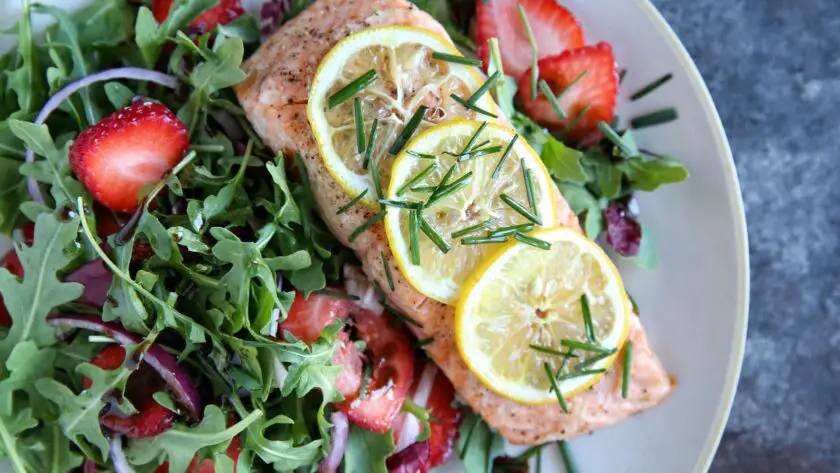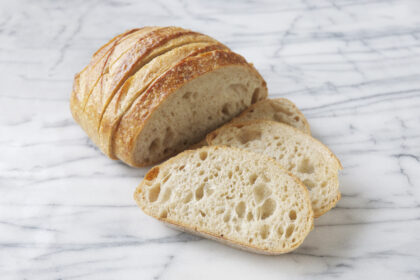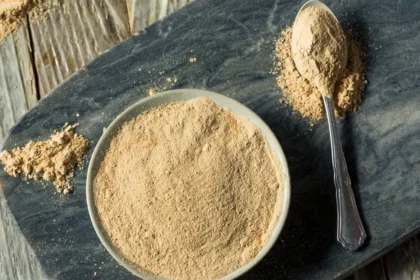Maintaining a healthy cardiovascular system is paramount to overall well-being, and proper nutrition plays a pivotal role in achieving this goal. In this article, we will explore the importance of specific nutrients and the foods that can provide them, offering a powerful meal to cleanse arterial plaque and biofilm, potentially improving heart health. A popular content creator and Doctor, Eric Berg recently shared the perfect meal for clearing out clogged arteries. This meal cleans out plaque which is a combination of protein, calcium and cholesterol.
First, we’ll share the specific nutrients that are necessary for healthy arteries as well as the foods that fulfill these needs for your body.
The Significance of Nutrients and Foods:
Vitamin K2 and Arterial Plaque: Vitamin K2 is a vital nutrient that helps direct calcium to the right places in our body. By ensuring that calcium is driven into the bones instead of accumulating in soft tissues, vitamin K2 can potentially play a role in reducing arterial plaque. Arterial plaque refers to the buildup of substances, including cholesterol, fat, calcium, and cellular waste, on the arterial walls, which can restrict blood flow and increase the risk of heart disease. Foods rich in vitamin K2, such as Parmesan cheese, can be incorporated into a heart-healthy meal to support potential plaque reduction.
Vitamin C and Antioxidant Support: Vitamin C, known for its immune-boosting properties, also aids in maintaining a healthy cardiovascular system. Acting as a potent antioxidant, it helps protect our arteries from oxidative stress and reduces inflammation, potentially benefiting arterial health. Furthermore, vitamin C plays a crucial role in collagen production, essential for maintaining the structural integrity of blood vessels. Including vitamin C-rich foods like citrus fruits, bell peppers, and strawberries in our meal can contribute to overall heart health.
Vitamin E and Arterial Biofilm: Vitamin E, another powerful antioxidant, offers potential benefits for our cardiovascular system. By preventing the oxidation of LDL cholesterol, commonly referred to as “bad” cholesterol, vitamin E can help reduce the formation of arterial biofilm. Arterial biofilm consists of microorganisms, cells, and extracellular substances that adhere to the arterial walls, potentially contributing to the development of plaque and increasing the risk of heart disease. Sunflower seeds, a delectable addition to our meal, provide a rich source of vitamin E.
Omega-3 Fatty Acids and Inflammation: Maintaining an optimal balance between omega-3 and omega-6 fatty acids is crucial for heart health. Omega-3 fatty acids possess anti-inflammatory properties and can help reduce the risk of cardiovascular disease. Conversely, excessive intake of omega-6 fatty acids can promote inflammation, which can be detrimental to arterial health. Including foods rich in omega-3 fatty acids, such as salmon, in our meal can contribute to a healthier cardiovascular system.
The Artery Cleansing & Plaque Busting Meal
Sauerkraut:
A Gut-Heart Connection: The connection between a healthy gut and a healthy heart is increasingly recognized. Sauerkraut, a fermented cabbage dish, contains lactic acid bacteria that act as an ace inhibitor, aiding in lowering blood pressure and potentially decreasing the risk of cardiovascular disease. By including sauerkraut in our meal, we can support both gut health and heart health, establishing a beneficial connection. To learn how to make your own fermented sauerkraut, kimchi and other fermented foods and drinks including kombucha and kimchi visit FermentationMethod.com.
Arugula:
Blood Glucose Regulation and Biofilm Reduction: Arugula, a nutrient-dense salad green, offers a range of heart-healthy benefits. It has been shown to help regulate blood glucose levels and contains compounds that may contribute to the reduction of arterial biofilm. Biofilm consists of microorganisms and extracellular substances that can adhere to the arterial walls and contribute to the development of plaque. By incorporating a fresh arugula salad into our artery-cleansing meal, we can potentially support a healthier cardiovascular system.
Extra Virgin Olive Oil:
The Anti-Inflammatory Power of Extra Virgin Olive Oil: A staple of the Mediterranean diet, possesses remarkable anti-inflammatory properties. Its rich content of monounsaturated fats and antioxidant compounds can help reduce inflammation, potentially benefiting arterial health. Incorporating extra virgin olive oil into our meal not only enhances flavor but also promotes a healthier heart.
Apple Cider Vinegar and Balsamic Vinegar:
Supporting Cardiovascular Health: Both apple cider vinegar and balsamic vinegar have shown potential benefits for cardiovascular health. The acetic acid present in these vinegars has been associated with a lower risk of cardiovascular disease. By using these vinegars in salad dressings or as a marinade for our heart-healthy proteins, we can add a flavorful touch to our meal while potentially supporting our heart health.
I highly recommend Kasandrinos olive oil and vinegars! They have incrediblely delicious and high quality olive oil and vinegar. They’re organic, non-gmo, cold-pressed, extra virgin and from Greece! No California pesticide contamination.
Click here to get a free bottle of organic kasandrinos olive oil on the house as a first time customer!
Garlic:
Promoting Heart Health: Garlic has long been revered for its potential health-promoting properties. It not only adds a distinctive flavor to our meals but also offers potential benefits for the heart. Garlic has been reported to possess blood-thinning properties, which can help reduce the risk of blood clots. Additionally, it exhibits antimicrobial and anti-biofilm properties, potentially contributing to a healthier cardiovascular system.
Conclusion: When it comes to maintaining a healthy cardiovascular system, the power of nutrients and carefully selected foods should not be underestimated. Incorporating vitamin K2-rich foods, such as Parmesan cheese, along with vitamin C-rich fruits and vegetables, can support potential plaque reduction. Including vitamin E sources like sunflower seeds, along with omega-3 fatty acid-rich foods like salmon, can help combat arterial biofilm and reduce inflammation. Sauerkraut and arugula offer gut-heart connections, while extra virgin olive oil, apple cider vinegar, balsamic vinegar, and garlic provide additional heart-healthy benefits. By embracing these nutrient-packed foods, we can create a delicious and heart-nourishing meal that may support the cleansing of arterial plaque and biofilm, promoting a healthier cardiovascular system overall.
Recommended Products:
Kasandrinos Olive Oil & Vinegars – Click Here To Get Your First Bottle Free! Just Pay S&H!
Apple Cider Vinegar Capsules – With Lemon, Ginger & Turmeric Now 15% Off By Clicking Here!
Fermentation Method – Learn How To Turn Your Kitchen into a Probiotic Factory & Never Buy Probiotic Pills Again!





